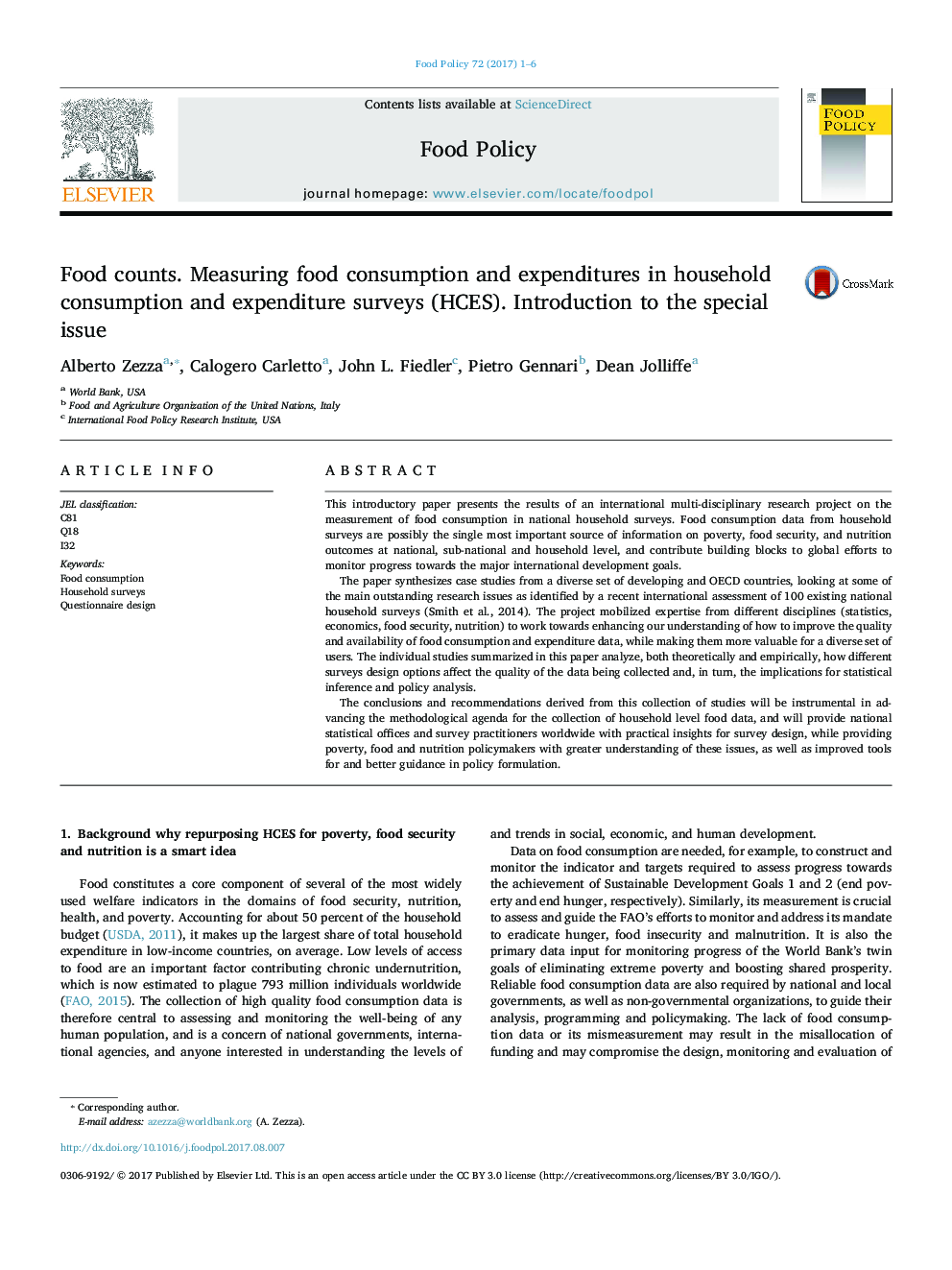| کد مقاله | کد نشریه | سال انتشار | مقاله انگلیسی | نسخه تمام متن |
|---|---|---|---|---|
| 5070052 | 1477004 | 2017 | 6 صفحه PDF | دانلود رایگان |
- Survey design choices impact food consumption data collected in household surveys.
- Survey practices that are detrimental for data quality should be discontinued.
- HCES can satisfy a wide range of data users with small tweaks in survey design.
- International guidelines for survey designers should be developed.
- Investing in survey methodology research is a priority.
This introductory paper presents the results of an international multi-disciplinary research project on the measurement of food consumption in national household surveys. Food consumption data from household surveys are possibly the single most important source of information on poverty, food security, and nutrition outcomes at national, sub-national and household level, and contribute building blocks to global efforts to monitor progress towards the major international development goals.The paper synthesizes case studies from a diverse set of developing and OECD countries, looking at some of the main outstanding research issues as identified by a recent international assessment of 100 existing national household surveys (Smith et al., 2014). The project mobilized expertise from different disciplines (statistics, economics, food security, nutrition) to work towards enhancing our understanding of how to improve the quality and availability of food consumption and expenditure data, while making them more valuable for a diverse set of users. The individual studies summarized in this paper analyze, both theoretically and empirically, how different surveys design options affect the quality of the data being collected and, in turn, the implications for statistical inference and policy analysis.The conclusions and recommendations derived from this collection of studies will be instrumental in advancing the methodological agenda for the collection of household level food data, and will provide national statistical offices and survey practitioners worldwide with practical insights for survey design, while providing poverty, food and nutrition policymakers with greater understanding of these issues, as well as improved tools for and better guidance in policy formulation.
Journal: Food Policy - Volume 72, October 2017, Pages 1-6
